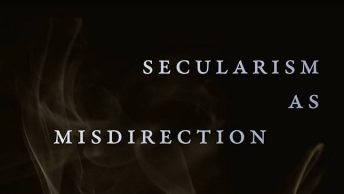For those interested in criminal justice and torture there is going to be an Independent People’s Tribunal on Torture, Extra-Judicial Killings, and Forced Disappearances this weekend (Feb. 9th and 10th from 9:00 to 6:00 and 9:00 to 4:30) at JNU (Life Science Auditorium) in Delhi. There are about 90 speakers coming from most of the states in India including a lot of victims or family members of victims, such as Dr. Ilena Sen, the wife of Dr. Binayek Sen the imprisoned PUCL Chattisgarh activist. I can’t seem to find the schedule online, but happy to forward the soft copy I have to those interested.







This legal development is pertinent and interesting.
Source:The Hindu, Hyd ed., Saturday, Jul 14, 2007
Encounters: police not bound to register case
Legal Correspondent
HYDERABAD: A three judge Bench of the High Court on Friday made it clear that it is not mandatory for the police to register a case of murder whenever there are encounter killings.
While two judges held this view, a third judge felt that cases under Section 302 of Indian Penal Code had to be registered and investigated. The bench was disposing of a batch of writ petitions referred to it by a Division Bench for answering this vexed issue which has been bothering the security establishment and human rights activists.
Several writ petitions were filed seeking a direction to the authorities to register a case of murder against the police personnel involved in encounters. Nearly a decade ago, a division bench of the High Court, which dealt with the killing of Madhusudhan Raj directed the registration of a case against the police.
Later, when a civil liberties organisation filed a writ petition seeking a similar sweeping direction to the authorities, the writ petition was dismissed by another Division Bench.
Subsequently, a similar issue came before a third division bench and was referred to a bench of three judges. The petitioners contended that the police had to establish that they killed the armed naxalites in self defence and prove their innocence before a court of law.
The Andhra Pradesh Police Officers Association, argued that in every case the registration of FIR and consequential statutory suspen- sion of the accused police officer was not accepted in law.
The Government opposed the case of the petitioners. Justice L. Narasimha Reddy and Justice Dr. Yethi Rajulu did not agree with the contention of the petitioners and said that in a case wherein there was complaint and some material, a criminal case could be registered. Justice Bilal Nazki felt that the case be registered in case of death.
Meanwhile, K. G. Kannabiran, President, People’s Union for Civil Liberties, in a statement, described the majority view of the Bench as unfortunate.
He said the direct consequence of this judgement was the non-accountability for the killings in police encounters.